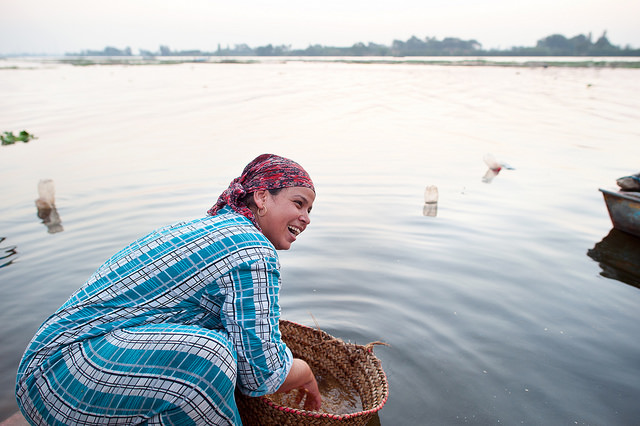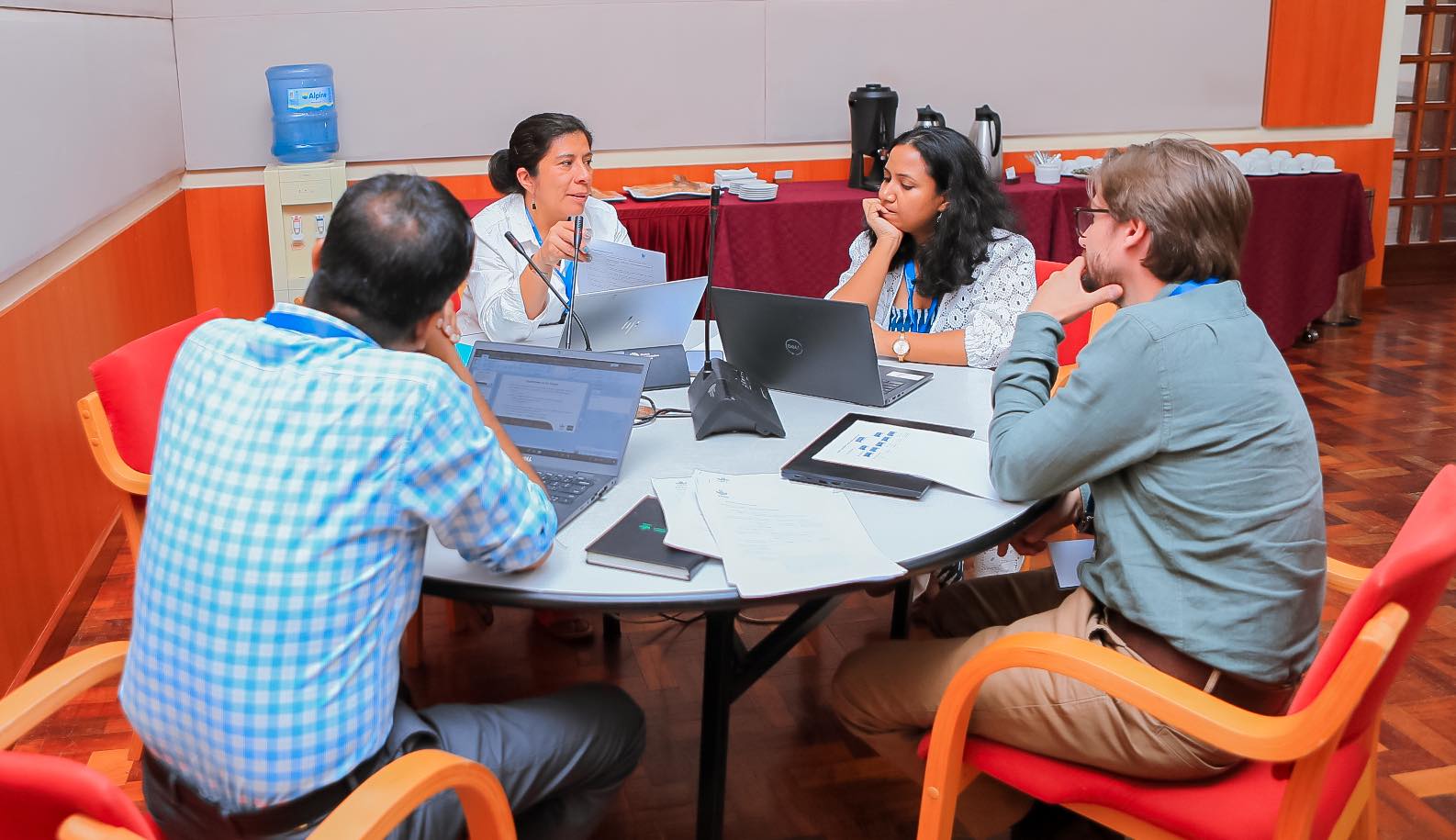Participants at a recent Cairo seminar held to mark the Egypt launch of IFPRI’s Global Food Policy Report (GFPR) grappled with the Arab region’s profound development problems.
The upheavals of the Arab Spring halted progress in meeting the United Nations Millennium Development Goals (MDGs), said Clemens Breisinger, director of IFPRI’s Egypt Strategy Support Program. “It looked very promising in the Arab region until 2010,” he said, “like the region and countries would reach the goals and particularly improvements in the areas of education, sanitation, child mortality, and maternal health indicators.”
The seminar, held May 10, was the first in a series funded by the United States Agency for International Development (USAID) project “Evaluating Impact and Building Capacity,” that is implemented by IFPRI.
With 2015 marking the end of the MDGs and the beginning of the United Nations Sustainable Development Goals (SDGs), Cairo University Professor Sherine Al-Shawarby, pondered the challenge that the 169 SDG targets present for Egypt given that the country had not achieved the 8 MDGs. “No policy will be successful unless a comprehensive approach—one that undertakes real structural reform—is followed,” she said.
“Policy matters, and it matters big time” said Jacinto Fabiosa, who leads USAID Egypt’s Trade and Investment Team. Sustainable economic growth depends on having robust laws and institutions, he said: Governments must be representative and markets competitive as they protect private rights, lead to contract enforcement, and signal a stable economy. Weak policies will undermine business growth and result in few firms being large enough to demand high-skill laborers. Smart policies can address the predicament of having few big firms, many small ones, and nothing in the middle.
The 2016 GFPR classifies Egypt as “Alarming” for its level of food security, noted Magued Osman, CEO of the Egyptian Center for Public Opinion Research (Baseera). This rating is due to many problems, including explosive population growth, rising poverty accelerated by unfavorable exchange rates, and low school enrollment rates, Osman said. Al-Shawarby added that having a healthy macroeconomic environment is crucial to Egypt’s food security.
Dorte Verner, Lead Agriculture Economist in Food and Agriculture Global Practice (GFADR) at the World Bank, led the audience through what is taking place with global food and agriculture and its contribution to wealth and employment. Building basic infrastructure to support each stage of food production, from farm to table, is essential, she said.
The presenters also discussed the dramatic increase in refugees in the region, which is a drag on development efforts. To achieve consistent and sustainable economic growth, they agreed that communicating research findings to decision makers and politicians is key; peace building and conflict prevention are essential regional priorities; and researchers should examine why countries fail to reach their development goals, rather than primarily focusing on a few success stories.







